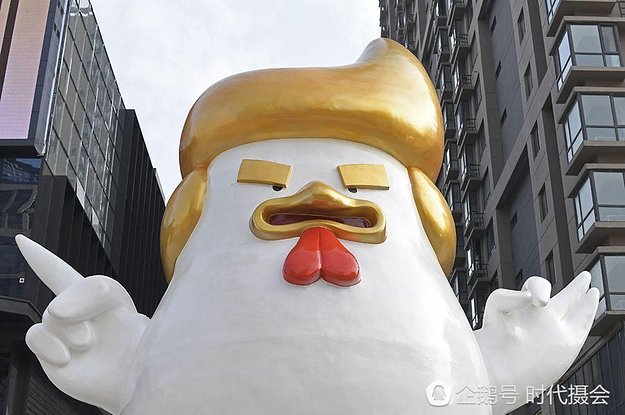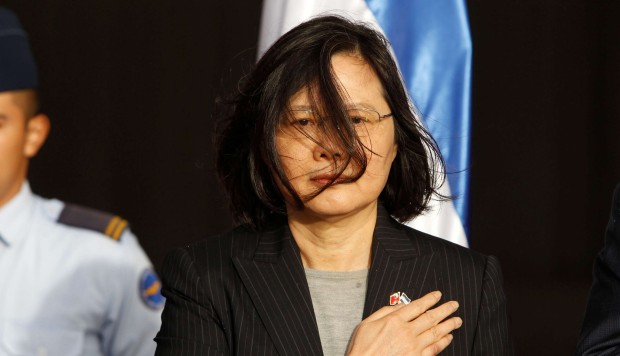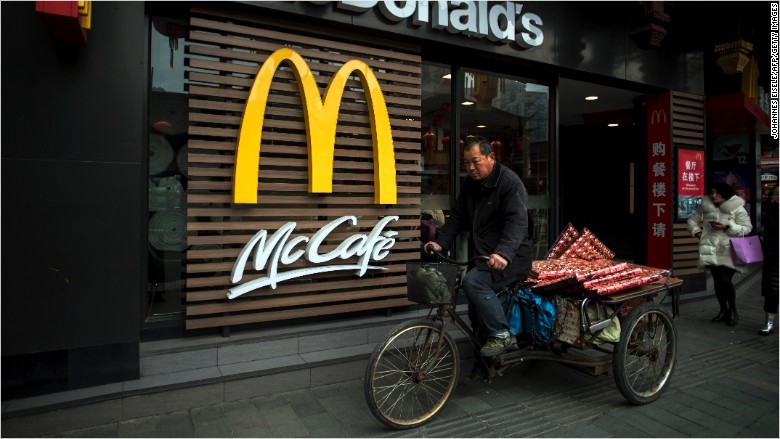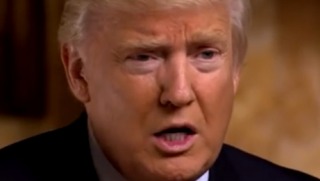It’s time to resuscitate the Asia-Pacific Quad It’s time to resuscitate the Asia-Pacific Quad
 2016 was quite a year. The Middle East continued its violent downward spiral ; a failed coup in Turkey erased the last vestiges of democracy in that country; the new president of the Philippines launched a bloody, nation-wide vigilante war on drugs ; North Korea conducted its fifth nuclear test , and its biggest to date; and China was deemed in flagrant violation of international law, a judgement it rejected with no real consequences. The European Union, already facing an existential crisis, was buffeted by the influx of refugees , secessionism by the United Kingdom , rising political populism , a continuing sovereign debt crisis , a low-intensity war to its immediate east , and high-profile terrorist incidents in Brussels , Nice, and Berlin. Afghanistan’s long-running conflict continued its slide into negligence by the world’s powers, while Pakistan’s security establishment intensified its policy of regular terrorist attacks against Indian military facilities. And, of course, the United States sprung the biggest surprise of all with the election of Donald Trump , a man of no prior political experience and uneven temperament who has questioned every underlying principle of the Washington Consensus.
2016 was quite a year. The Middle East continued its violent downward spiral ; a failed coup in Turkey erased the last vestiges of democracy in that country; the new president of the Philippines launched a bloody, nation-wide vigilante war on drugs ; North Korea conducted its fifth nuclear test , and its biggest to date; and China was deemed in flagrant violation of international law, a judgement it rejected with no real consequences. The European Union, already facing an existential crisis, was buffeted by the influx of refugees , secessionism by the United Kingdom , rising political populism , a continuing sovereign debt crisis , a low-intensity war to its immediate east , and high-profile terrorist incidents in Brussels , Nice, and Berlin. Afghanistan’s long-running conflict continued its slide into negligence by the world’s powers, while Pakistan’s security establishment intensified its policy of regular terrorist attacks against Indian military facilities. And, of course, the United States sprung the biggest surprise of all with the election of Donald Trump , a man of no prior political experience and uneven temperament who has questioned every underlying principle of the Washington Consensus.
The new year is thus a sobering moment to take stock of the international order, whose benefits to peace, security, development, and public welfare around the world are too often taken for granted. Indeed, the United States, China, Russia, United Kingdom, and other major powers almost seemed to be in a race to the bottom over the past year in presenting their credentials as responsible global leaders. Moreover, international institutions—whether the United Nations, European Union, Association of Southeast Asian Nations (ASEAN), or NATO—showed themselves to be incapable or ill-equipped to deal with some of the chief global challenges.
There are no quick and easy fixes to stemming this tide, but modest steps can be taken around the margins. An important—indeed, singular—objective now should be to preserve a stable balance of power in the Indo-Pacific, the vast strategic space which is home to 60 percent of the world’s population and an even higher proportion of its economic growth. This region remains a possible flashpoint for great power conflict, most notably between China and the United States. A further erosion of the Asian order would also have terrible consequences for the international economy at a moment of particular vulnerability.
Against this backdrop, one minor but important corrective might be a resuscitation of an informal grouping of democratic maritime powers in the region, with a focus on both the Indian and Pacific Oceans. The obvious candidates include the United States, India, Japan, and Australia (or “Quad”). The four countries collectively launched ad hoc operations to provide relief following the devastating Indian Ocean tsunami in 2004. In Manila in 2007, the prime ministers of India, Japan, and Australia met with then U. S. Vice President Dick Cheney on the sidelines of the ASEAN Regional Forum, marking the first Quadrilateral summit. Later that year, the four countries along with Singapore held a large multilateral naval exercise in the Indian Ocean that involved over 25 ships and 20,000 personnel. China, which saw the exercises as part of a containment strategy, registered diplomatic protests with all four capitals.
Beijing’s expression of displeasure had an immediate effect. In early 2008, the new government of Kevin Rudd in Australia made it clear that it would not participate in future quadrilateral activities, apparently in deference to Chinese sensitivities. This, combined with the fall of Japanese Prime Minister Shinzo Abe (who was seen as the progenitor of the concept), the end of George W. Bush’s presidential tenure, and opposition from Indian Prime Minister Manmohan Singh’s political allies, seemed to doom the idea of the Quad for good.
But the rationale for a similar arrangement today is even greater and the political circumstances are also more favorable. Having returned to power, Abe has radically reformed Japan’s national security structures. India’s Prime Minister Narendra Modi has been diplomatically active and has prioritized a closer partnership in the Indo-Pacific with the United States and Abe’s Japan. For many years, questions remained about Australia’s commitment and inclination, colored by Rudd’s unilateral decision to withdraw from the Quad. But while the Australian economy remains heavily reliant on resource exports to China, Canberra is not under any illusions about its strategic orientation. In fact, developments in the South China Sea and Indian Ocean seem to have hardened the resolve of Australia’s security establishment. There is also a case for including more countries into an emerging soft security architecture for the region, including possibly Indonesia and the Philippines.
Today, of course, the big question mark surrounds Washington. Trump and his advisors have sent contradictory signals. On the one hand, a skepticism of overseas commitments and the unfamiliarity of some of his advisors with Asian security matters might make the region appear a lower priority for the incoming administration. On the other hand, the recent row with China over Taiwan and a commitment to increase military spending and American naval capabilities mean that Trump might be more favorably-disposed towards such burden-sharing arrangements than his predecessor Barack Obama.
There is, of course, a risk that China would read any such activities as evidence of containment or encirclement. But deferring to Chinese sensitivities has done little over the past eight years to moderate Beijing’s assertiveness, whether in the East or South China Seas, or in the Indian Ocean. At best, greater transparency about the nature of any security activities and continuous dialogue with China about how its rise can continue in a manner that reassures others in its periphery might help mitigate the security dilemma.
Moreover, the emergence of a plurilateral security architecture in the Asia-Pacific (whether quadrilateral or otherwise) should not be mistaken for an Asian NATO, or any such collective security organization. It would be a grave error for Beijing to see it as such, not least because its opposition would be self-fulfilling and could realize its worst fears. Additionally, any “hard” security arrangement resembling an alliance would run counter to the wishes of its participants, particularly India, which sees security treaties as undermining its sovereignty and thus unnecessarily constraining. Instead, any such arrangement would serve the valuable purpose of facilitating an exchange of information and viewpoints among leaders of the major democratic Indo-Pacific powers in an increasingly uncertain world. That alone is a reason for its resurrection.
Get daily updates from Brookings
Enter Email
© Source: http://webfeeds.brookings.edu/~/255700836/0/brookingsrss/topfeeds/latestfrombrookings~It%e2%80%99s-time-to-resuscitate-the-AsiaPacific-Quad/
All rights are reserved and belongs to a source media.


 BEIJING: The smog-hit Chinese capital of Beijing will establish a police force to deal specifically with environmental offences as part of its efforts to clean up its air and crack down on persistent polluters.
BEIJING: The smog-hit Chinese capital of Beijing will establish a police force to deal specifically with environmental offences as part of its efforts to clean up its air and crack down on persistent polluters.
 BERLIN—Volkswagen AG’s emissions-cheating scandal took a hefty dent out of sales of its VW brand in 2016, but strong growth in China and Eastern Europe helped offset declines in other major markets.
BERLIN—Volkswagen AG’s emissions-cheating scandal took a hefty dent out of sales of its VW brand in 2016, but strong growth in China and Eastern Europe helped offset declines in other major markets. 
 Three alleged terror suspects were shot dead by police officers in China’s Xinjiang Province on Sunday night. The police had been in pursuit of the suspects, who resisted arrest, for their connection to a terror incident that transpired in 2015.
Three alleged terror suspects were shot dead by police officers in China’s Xinjiang Province on Sunday night. The police had been in pursuit of the suspects, who resisted arrest, for their connection to a terror incident that transpired in 2015. 
 This giant rooster sculpture outside of a mall in Taiyuan, China has gone viral. #TrumpRooster welcomes #ChineseNewYear in Taiyuan, N China’s Shanxi province https://t.co/quosHmdMgQ It was erected to usher in the Year of the Rooster on the Chinese zodiac calendar, which will begin eight days after President-elect Donald Trump is inaugurated. Bless whomever was responsible for this statue in Taiyuan, China. Year of the rooster, indeed!
This giant rooster sculpture outside of a mall in Taiyuan, China has gone viral. #TrumpRooster welcomes #ChineseNewYear in Taiyuan, N China’s Shanxi province https://t.co/quosHmdMgQ It was erected to usher in the Year of the Rooster on the Chinese zodiac calendar, which will begin eight days after President-elect Donald Trump is inaugurated. Bless whomever was responsible for this statue in Taiyuan, China. Year of the rooster, indeed!
 Texas senator Ted Cruz and governor Greg Abbott said they met Taiwan president Tsai Ing-wen on Sunday, while she was passing through Texas on her way to diplomatic stops in Central America. Cruz said China’s consulate had asked, in “a curious letter”, that the Houston congressional delegation “uphold the ‘One-China policy’” and not meet the Taiwanese leader. In December, US president-elect Donald Trump spoke with Tsai by phone, breaking decades of US precedent in relations with China. Cruz, a Republican who endorsed Trump after losing to him in the presidential primary, had previously defended Trump’s call. “The People’s Republic of China needs to understand that in America we make decisions about meeting with visitors for ourselves,” Cruz said in a statement on Sunday. “This is not about the PRC. This is about the US relationship with Taiwan, an ally we are legally bound to defend. The Chinese do not give us veto power over those with whom they meet. We will continue to meet with anyone, including the Taiwanese, as we see fit.” Cruz added that he and Tsai discussed “arms sales, diplomatic exchanges and economic relations”, and that he hoped to increase trade between Texas and Taiwanese markets. In a separate statement , Abbott said he and Tsai discussed agriculture and gas trade, and exchanged gifts. Tsai received “a clock bearing the Texas State Seal”, Abbott said, and the governor received a vase. Abbott said the issues discussed were energy, trade relations and commercial ties between Taiwan and Texas. American lawmakers often meet Taiwanese presidents when they pass through the US, despite tensions between federal officials. Tsai incurred China’s anger over her refusal to endorse Beijing’s policy that the mainland and Taiwan constitute a single Chinese nation. Beijing lodged a complaint with the US over Trump’s call with Tsai, the first between American and Taiwanese leaders since ties were cut in 1979 at China’s request. Barack Obama’s White House reassured China, but Trump continued to threaten exacerbating tensions with Beijing. Not long after his 10-minute conversation with Tsai, the president-elect went on a tirade against China on Twitter. He wrote: “Did China ask us if it was OK to devalue their currency (making it hard for our companies to compete), heavily tax our products going into their country (the US doesn’t tax them) or to build a massive military complex in the middle of the South China Sea? I don’t think so!” He then accused China of stealing an underwater drone that it seized in contested waters, calling it an “unpresidented [sic] act”. “We should tell China that we don’t want the drone they stole back,” he wrote. “Let them keep it!”
Texas senator Ted Cruz and governor Greg Abbott said they met Taiwan president Tsai Ing-wen on Sunday, while she was passing through Texas on her way to diplomatic stops in Central America. Cruz said China’s consulate had asked, in “a curious letter”, that the Houston congressional delegation “uphold the ‘One-China policy’” and not meet the Taiwanese leader. In December, US president-elect Donald Trump spoke with Tsai by phone, breaking decades of US precedent in relations with China. Cruz, a Republican who endorsed Trump after losing to him in the presidential primary, had previously defended Trump’s call. “The People’s Republic of China needs to understand that in America we make decisions about meeting with visitors for ourselves,” Cruz said in a statement on Sunday. “This is not about the PRC. This is about the US relationship with Taiwan, an ally we are legally bound to defend. The Chinese do not give us veto power over those with whom they meet. We will continue to meet with anyone, including the Taiwanese, as we see fit.” Cruz added that he and Tsai discussed “arms sales, diplomatic exchanges and economic relations”, and that he hoped to increase trade between Texas and Taiwanese markets. In a separate statement , Abbott said he and Tsai discussed agriculture and gas trade, and exchanged gifts. Tsai received “a clock bearing the Texas State Seal”, Abbott said, and the governor received a vase. Abbott said the issues discussed were energy, trade relations and commercial ties between Taiwan and Texas. American lawmakers often meet Taiwanese presidents when they pass through the US, despite tensions between federal officials. Tsai incurred China’s anger over her refusal to endorse Beijing’s policy that the mainland and Taiwan constitute a single Chinese nation. Beijing lodged a complaint with the US over Trump’s call with Tsai, the first between American and Taiwanese leaders since ties were cut in 1979 at China’s request. Barack Obama’s White House reassured China, but Trump continued to threaten exacerbating tensions with Beijing. Not long after his 10-minute conversation with Tsai, the president-elect went on a tirade against China on Twitter. He wrote: “Did China ask us if it was OK to devalue their currency (making it hard for our companies to compete), heavily tax our products going into their country (the US doesn’t tax them) or to build a massive military complex in the middle of the South China Sea? I don’t think so!” He then accused China of stealing an underwater drone that it seized in contested waters, calling it an “unpresidented [sic] act”. “We should tell China that we don’t want the drone they stole back,” he wrote. “Let them keep it!”
 Citic, a massive Chinese financial firm, is taking the majority stake in McDonald’s ( MCD ) operations in mainland China and Hong Kong.
Citic, a massive Chinese financial firm, is taking the majority stake in McDonald’s ( MCD ) operations in mainland China and Hong Kong. 
 China’s popular nationalistic tabloid on Sunday warned US President-elect Donald Trump that Beijing would set on a „revenge“ mode if he renounces the „One China“ policy. The warning comes barely hours after Taiwanese president Tsai Ing-wen made a controversial stopover at America’s Houston city before flying to South America.
China’s popular nationalistic tabloid on Sunday warned US President-elect Donald Trump that Beijing would set on a „revenge“ mode if he renounces the „One China“ policy. The warning comes barely hours after Taiwanese president Tsai Ing-wen made a controversial stopover at America’s Houston city before flying to South America. 
 Advertisement – story continues below
Advertisement – story continues below 
 McDonald’s Corp. said it will sell 80 per cent of its fast-food restaurant business in Hong Kong and mainland China in a deal valued at HK$16.14 billion (US$2.08 billion) to the largest Chinese international trust company and US private equity firm Carlyle Group. After the cash-and-shares transaction, CITIC and CITIC Capital will own a 51 per cent controlling stake, while Carlyle will own 28 per cent. McDonald’s, based in Illinois state, will keep 20 per cent interests in the company, according to press release by the three companies. The formation of the partnership will act as the master franchisee responsible for McDonald’s businesses in mainland China and Hong Kong for 20 years, the press release said.
McDonald’s Corp. said it will sell 80 per cent of its fast-food restaurant business in Hong Kong and mainland China in a deal valued at HK$16.14 billion (US$2.08 billion) to the largest Chinese international trust company and US private equity firm Carlyle Group. After the cash-and-shares transaction, CITIC and CITIC Capital will own a 51 per cent controlling stake, while Carlyle will own 28 per cent. McDonald’s, based in Illinois state, will keep 20 per cent interests in the company, according to press release by the three companies. The formation of the partnership will act as the master franchisee responsible for McDonald’s businesses in mainland China and Hong Kong for 20 years, the press release said.

